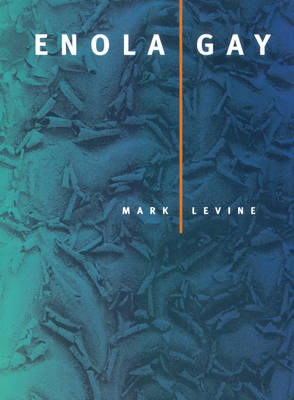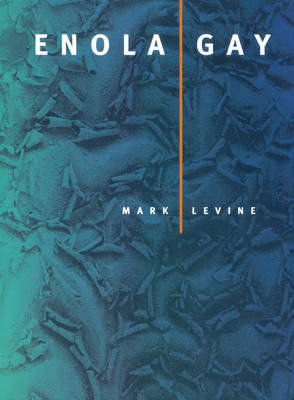
- Afhalen na 1 uur in een winkel met voorraad
- Gratis thuislevering in België vanaf € 30
- Ruim aanbod met 7 miljoen producten
- Afhalen na 1 uur in een winkel met voorraad
- Gratis thuislevering in België vanaf € 30
- Ruim aanbod met 7 miljoen producten
Zoeken
Omschrijving
Some devastation has struck the soul and the Earth alike, and in Enola Gay, his second volume of poems, Mark Levine surveys the disaster. Here is a volume of poetry approaching Carolyn Forche's The Angel of History as a stark meditation on Blanchot's sense of writing as the "desired, undesired torment which endures everything."
Levine engages the traditional resources of lyric poetry in an exploration of historical and cultural landscapes ravaged by imponderable events. Enola Gay's "mission" can seem spiritual, imaginative, and militaristic as the speaker in these poems surveys marshes and fields and a land on the edge of disintegration. Levine sifts the psychological residue that accumulates in the wake of unspeakable acts and so negotiates that terrain between the banality of language and the need to stand witness and to speak.
Levine's stunning second book, with its grave cultural implications and its surveillance of a distinctly postmodern malaise, offers multiple readings. Here are compact poems with uncanny power, rhythm, and a strange, formal beauty echoing and renewing the legacy of Wallace Stevens for a new era.
Levine engages the traditional resources of lyric poetry in an exploration of historical and cultural landscapes ravaged by imponderable events. Enola Gay's "mission" can seem spiritual, imaginative, and militaristic as the speaker in these poems surveys marshes and fields and a land on the edge of disintegration. Levine sifts the psychological residue that accumulates in the wake of unspeakable acts and so negotiates that terrain between the banality of language and the need to stand witness and to speak.
Levine's stunning second book, with its grave cultural implications and its surveillance of a distinctly postmodern malaise, offers multiple readings. Here are compact poems with uncanny power, rhythm, and a strange, formal beauty echoing and renewing the legacy of Wallace Stevens for a new era.
Specificaties
Betrokkenen
- Auteur(s):
- Uitgeverij:
Inhoud
- Aantal bladzijden:
- 79
- Taal:
- Engels
- Reeks:
- Reeksnummer:
- nr. 2
Eigenschappen
- Productcode (EAN):
- 9780520222601
- Verschijningsdatum:
- 11/04/2000
- Uitvoering:
- Paperback
- Formaat:
- Trade paperback (VS)
- Afmetingen:
- 140 mm x 191 mm
- Gewicht:
- 113 g

Alleen bij Standaard Boekhandel
+ 81 punten op je klantenkaart van Standaard Boekhandel
Beoordelingen
We publiceren alleen reviews die voldoen aan de voorwaarden voor reviews. Bekijk onze voorwaarden voor reviews.








